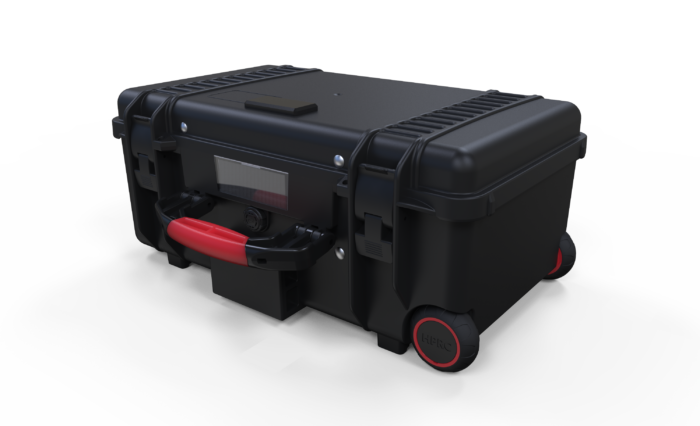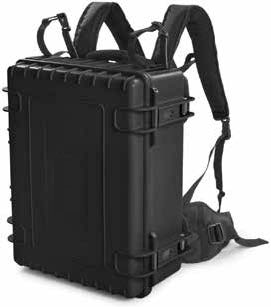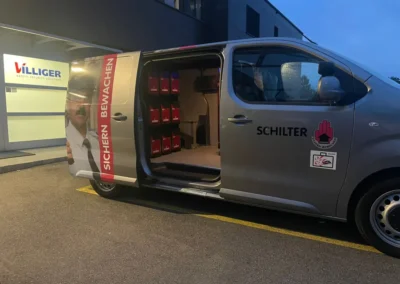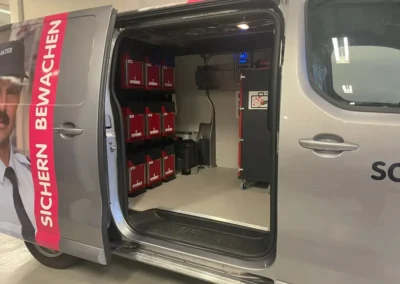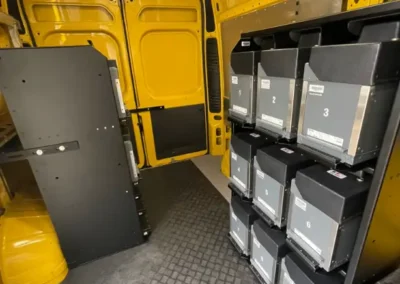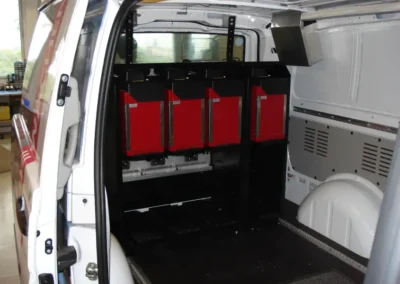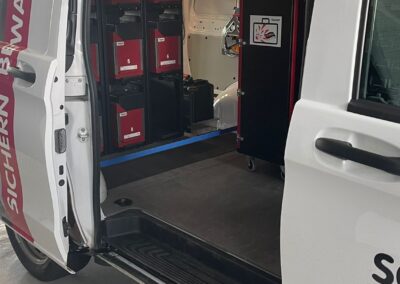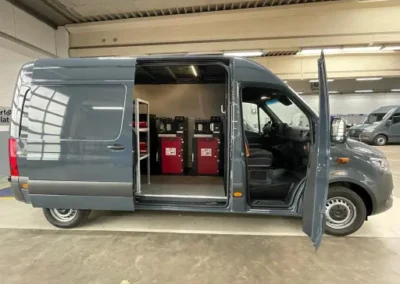
1-Man Operation efficiency
Impacted by the economic crisis, many Cash In Transit companies have had to deal with heavy changes. To reduce these bottlenecks, Villiger has installed the largest 1-Man Operated Vehicles in 2023. The result is easier route management and optimized financial and environmental costs.
Let’s decipher the challenges and the benefits of a 1-Man Operation.
To be deployed effectively, the concept of One Man Operations also requires the implementation of an IBNS System and a platform management strategy shared between the various parties (manufacturers, Cash In Transit, Cash Center, Retail, etc.).
It allows for an economy of scale on labor costs. It brings more agility and efficiency in the operation, but also a better inventory management. It iss even simpler for Cash In Transit working with the same product range, sharing it across all or part of their customer base and/or following a similar logistic set up.
The Changes coming for 2030 and the need for Environmental Friendly Security Solutions
Electric Vehicles are not new for the commercial use. Cash In transit will have to change their fleets within the next 10 years due to regulations on standard vehicles. Due to the fact that Electric Vehicles have a heavier weight, loading weight will have to be reduced. It will not be efficient for Electric Vehicles to be armoured. The only option is Ink Stating Solutions and the switch to One Man Operations.
Green Security for the future
Villiger Green Security is a new field defining and exploring security solutions under an
energy-aware perspective. Villiger Green Security aims at:
1st – Evaluating the actual security mechanisms in order to assess their energy consumption
2nd – Building new security mechanisms by considering energy costs from the design phase
The first installation of 1-Man Operated Soft Skin Electrical Vehicle with IBNS Technology
Reduce your logistics costs and improve your visibility on sales and inventory
IBNS and One Man Operations will reduce costs. For example, we can go from 20 different trips to a single solution and a single trip. This will significantly reduce the carbon footprint. The “partners” can decide to share the trucks according to a fixed distribution (each has a number of clients known in advance) or according to a variable distribution.
The CIT Company will also have full visibility on services and stocks and will thus be able to better control the rotation and assortment of its fleet. For CIT Companies, IBNS and One Man Operations allows them to make real savings while making their service available at the right time, in the right time frame and for the right client. And thus respond to a customer who is more and more difficult to satisfy.
A complete End to End Solution reduces the operating cost of your processes by 20 to 40% while lowering the costs of referencing, order processing, logistics dispute management, inventory management, transportation, invoicing, payment…
Finally, it allows you to create new value offers through collaboration with the customer!
Thos cost of Armoured and two man operations
A calculation that many purchasing departments forget to look at.
Villiger One Man Operated IBNS Solutions eliminates every single cost factor.
Facilitate exchanges with your Fleet…
It is difficult to pool your transport without using a dedicated solution. In this case, a lack of flexibility on the operations can have dramatic consequences on your image as well as on your customer relations. To improve the flexibility of your customers, IBNS Solutions from VILLIGER including the Rolling Rack offers many functionalities allowing you to consult the available fleets to date, to follow customer orders and replenishments, movements in real time and products according to different segmentation that you define (batches, dates…).
Thanks to its various VILLIGER features:
- you improve service rates & increase sales;
- you increase your service levels by 20-30%, reduce outages, increase sales volumes and build customer loyalty;
- give importance and responsability to your CIT guard;
- you reduce the costs of logistics, labor and transport operations;
- You reduce inventory levels by 30-50% by optimizing truck fill rates to over 90%;
- you support your Corporate Social Responsibility, Environmental policies by reducing your energy consumption, the number of kilometers traveled, waste, etc.
1. Reduction of labor costs
Here is a reflection on the direct and indirect costs, which is the hiring of specialized labor. In addition to the costs of selecting and hiring the professional, we have the salary, benefits, vacation (during this period, the cost of replacing the professional or hiring a third party), labor liabilities, overtime and the investment in keeping the vehicle and the professional inside legislation and all the updates that happen frequently.
No matter how good the employee is, continued training is extremely important for this professional, who is the company’s business card, who daily visits its customers, delivering their services. There is no school or vocational course to train a CIT guard and for this professional to develop it is necessary for the contractor to provide ongoing training and qualification.
2. Workforce training
3. Fleet maintenance
From scheduling stops for washing equipment, proper cleaning, control of supplies, maintenance of mechanical, electrical, reading the tachograph disk, control of the working day, routing of the vehicle and control of deliveries demands the work of a third person so that transport management is efficient and optimized. The cost of these services is not always accounted for when calculating the cost of the fleet itself. We must remember that taking care of documentation, fine management, fleet insurance, life insurance and cargo insurance, managing all the risk is not a cheap and easy task.
The capital invested in armouring and additional labor cost could be used in other areas of the company, from innovation, to IBNS equipment or even in the commercial area of the company, to increase sales, which is what really matters for companies. Among so many other means to direct this resource, invest in armouring, additional labor cost and increase gas prices, to manage the fleet are financial expenses that are often not made and this can compromise the quality of the services provided and when done, they are expensive.





 Pharma
Pharma Eisenbahn
Eisenbahn Maritim
Maritim Luftverkehr
Luftverkehr Post
Post Luxus
Luxus Wertsachen
Wertsachen
